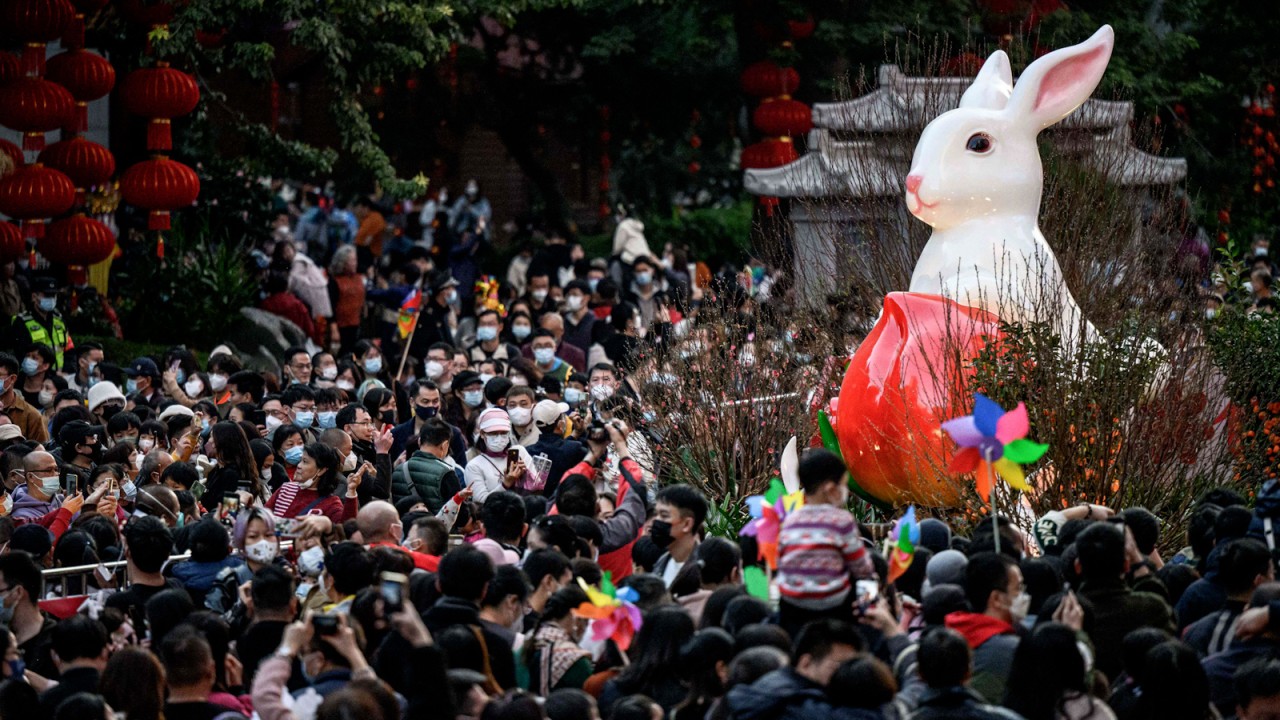
To catch foreign investors, China casts mega projects with great potential in uncertain times
- Beijing again put on the charm this week to reassure businesspeople and lure overseas capital amid a trend of multinationals diversifying away from China
- Apple CEO Tim Cook’s meeting with chairman of China’s top economic-planning authority highlights how American executives are courted amid disputes with Washington
China is thinking big – mega, even – as it pins hopes on multinationals helping bolster its standing in global supply chains against the backdrop of unwavering geopolitical tensions.
Protecting China’s long-critical role in global supply chains was one of the key challenges facing its policymakers in the past three years plagued by the pandemic – a period in which many companies realised they were overly dependent on China, fuelling a trend toward diversification abroad.
And even with China’s coronavirus restrictions lifted since late last year, disorder and uncertainty have perhaps become even more prevalent with Washington stepping up its technological-containment efforts, especially in the semiconductor industry.
ASML is under pressure from the US to suspend its supply to China. Doing so could hinder Beijing’s ambitions to develop its own semiconductor industry and fund its rapidly growing digital economy.
“We hope that ASML will be firm in its commitment to trade with China and keep making positive contributions to Chinese-Dutch economic and trade cooperation, while maintaining the stability of the global semiconductor industry chain and supply chain,” the minister said.
The world’s second-largest economy has also seen a rising number of foreign firms embracing the diversification trend by offshoring their manufacturing bases, moving away from China but not abandoning it. Many seek lower production costs, while others point to worries over geopolitical strife – from trying to comply or bypass potential US tariffs on Chinese goods, to ensuring that mass lockdowns do not have such an outsized impact if they were to occur again.
Zheng Shanjie, chairman of the National Development and Reform Commission, talked to Apple CEO Tim Cook on Monday about issues such as the stabilisation of global supply chains.
China’s rapidly digitising industries, vast market and massive middle-income group present a lucrative market for multinational companies such as Apple, the official said.
While China’s foreign direct investment (FDI) in 2022 saw a year-on-year rise of 8 per cent to US$189.13 billion, Beijing has acknowledged that the national economy will be troubled by declining “external demand” in a global economic downturn forecast for this year.
FDI rose 1 per cent in the first two months of this year, according to commerce ministry data.
In the southern manufacturing hub of Guangdong province, authorities on Tuesday launched the Invest in China Year series of promotional investment events.
“China’s economy is strong and resilient, with sufficient potential, and the fundamentals of long-term improvement have not changed,” Vice-Premier He Lifeng said at the ceremony in Guangzhou city.
He added that as China’s economy is clearly rebounding while various supporting policies are being effectively implemented, and “it’s the perfect time for foreign businesses to expand their investment”.
“Everyone is welcome to seize the favourable opportunity and make a long-term [investment] plan in China,” he encouraged. “I believe that foreign-funded enterprises will usher in a more beautiful future in China with great development prospects.”
China is already seeing a comeback of small investors from abroad, as the national economy is steadily recovering after nearly three years of strict zero-Covid controls.
Authorities from Yiwu city, an export hub for small commodities in the eastern province of Zhejiang, said that there were 181 foreign-funded companies registered as of mid-March, a 123 per cent increase from the same period a year prior.
The authorities boasted that investors came to the city from 49 countries and five continents, and 121 of the firms were funded by Asian investors.
Before the pandemic, about 15,000 foreign businessmen were regularly based in Yiwu, according to the local immigration administration. At their fewest during the pandemic, that total was halved.
But as of March, the number of businessmen and businesswomen had recovered to 80 per cent of what was seen before the pandemic, and it looks to keep rising.
Additional reporting by Frank Tang


